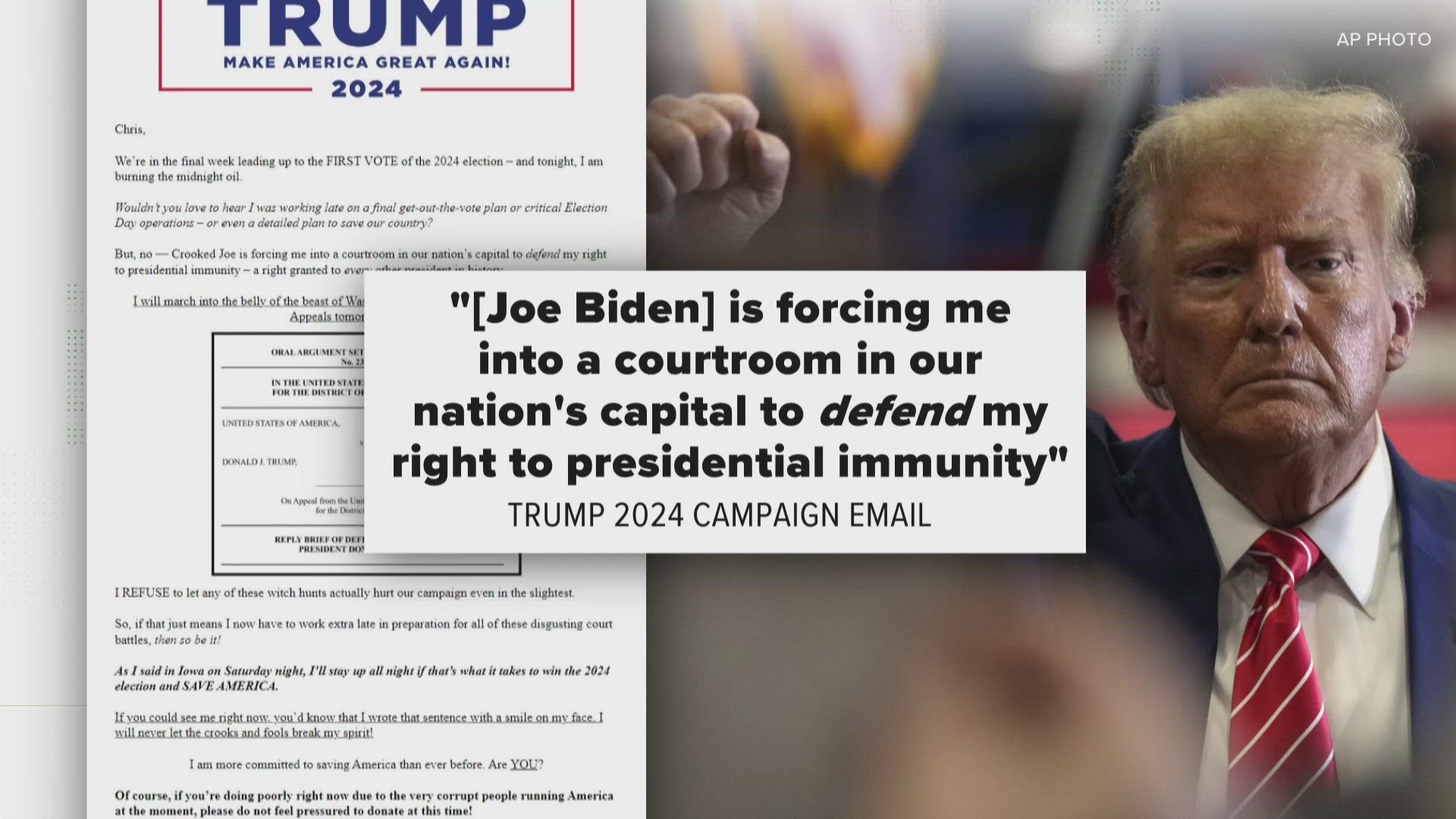WASHINGTON D.C., DC — Former President Donald Trump appeared in a Washington D.C. courtroom Tuesday morning as his attorney argued that presidential immunity is a valid defense against the federal charges brought in relation to the Jan. 6, 2021 attack at the U.S. Capitol.
Trump spoke after the hearing's conclusion, reiterating his belief that the prosecution is politically motivated because polls show him leading President Joe Biden in the race for the 2024 election.
In an email to supporters before the hearing, the former president claimed that these legal proceedings are keeping him off the campaign trail in the days before primary votes are cast in Iowa and New Hampshire. He wrote that President Biden, "is forcing me into a courtroom in our nation’s capital to defend my right to presidential immunity – a right granted to every other president in history."
QUESTION
Was Donald Trump legally required to appear in appellate court for Tuesday's hearing?
SOURCES
Erica Hashimoto, professor of law, Georgetown University
ANSWER
Legally and logically, nothing compels an appellant to show up for appellate court hearings.
WHAT WE FOUND
While an appellant such as former President Trump has every right to attend hearings as part of an appeal, nothing required him to be present.
The Sixth Amendment of the U.S. Constitution guarantees a criminal defendant’s right to be present at trial proceedings.
Professor Hashimoto, who leads the Appellate Litigation Center at Georgetown University Law Center, said that does not apply to appeals hearings, and added that nothing specifically requires a defendant’s presence at appellate arguments.
"Criminal defendants are not required to show up for any appellate proceedings (or in the Supreme Court, for that matter)," she said via email. "Indeed, they are often in jail or prison so [they] cannot show up. Trump's lawyers may have asked him to attend. But he did not have to be there.”
Trump will resume campaigning Wednesday with a televised town hall event in Iowa. Iowa Republican voters will caucus Jan. 15 as they begin the party's process for picking a 2024 presidential nominee.

